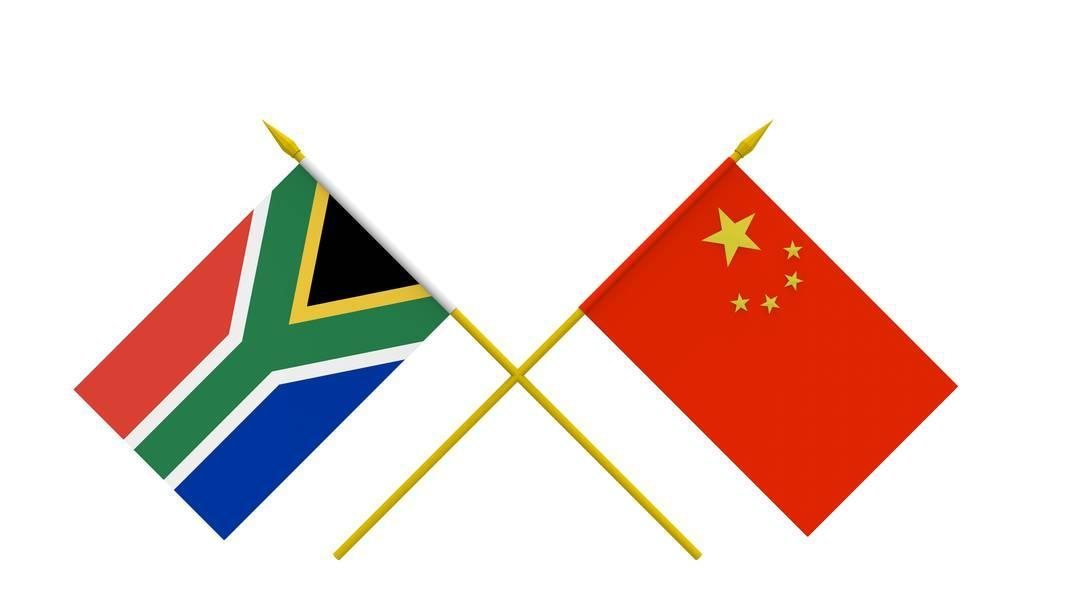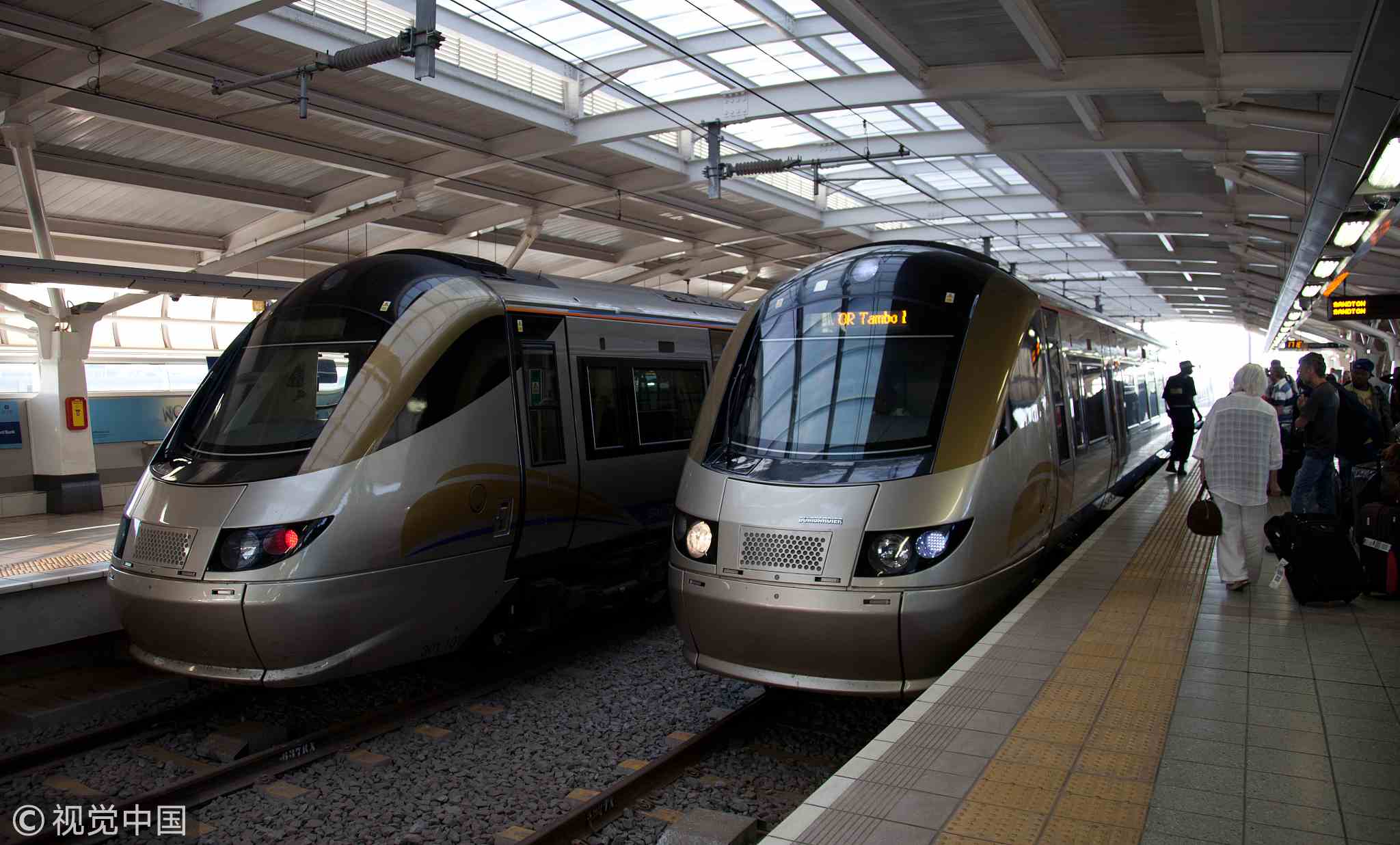
Opinions
11:02, 27-Jul-2018
Opinion: China-South Africa, a driving force of the fourth industrial revolution
Updated
10:18, 30-Jul-2018
Shen Shiwei

Editor’s note: Shen Shiwei is a research fellow of the Charhar Institute and former government relations and business consultant for Chinese enterprises permanently in Africa. The article reflects the author's opinion, and not necessarily the views of CGTN.
To quote from Mr. Nelson Mandela, former President of South Africa, “The African rebirth is now more than an idea. Its seeds are being sown in the regional communities we are busy building and in the continent as a whole.”
As the leading economy in the African continent, South Africa is endeavoring to accelerate its re-industrialization process and attract more foreign investment, which would set a good example of cooperation to speed up the fourth industrialization. And China is a good partner.
Hi-tech on the wheels to impulse “Made in South Africa”
Private cars are essential and popular in South Africa.
In a country with 56.52 million people, private car ownership has reached more than 8 million. Around 26 per cent of South African households own one car at least and 82 per cent of families with income over South African Rand 6000 (600 US dollars) own one or two private cars, according to a report from the Economic and Commercial Office of Chinese Embassy in South Africa.
South Africa is a major country of automobile parts manufacturing and vehicle exports. Almost all world famous automobile brands have their investment and manufacturing there. China is also expanding its vehicle manufacturing with its South African counterparts.

10th BRICS summit in South Africa is holding in Johannesburg from Jul 25-27,2018./VCG Photo
10th BRICS summit in South Africa is holding in Johannesburg from Jul 25-27,2018./VCG Photo
China's BAIC (Beijing Automobile International Corporation) has invested in an automobile manufacturing plant with Industrial Development Corporation near the Port Elizabeth, known as “South Africa’s Detroit” in 2015. It became the biggest investment in a vehicle-production facility in South Africa in four decades. Also, this facility is BAIC's first integrated auto-manufacturing plant outside its home market.
On July 24, Chinese President Xi Jinping and South African President Cyril Ramaphosa witnessed the debut of BAIC manufacturing plant’s first vehicle. Soon, we will see more high-quality vehicles manufactured by BAIC in South African and neighboring markets.
Besides that, FAW China, one of China's largest automakers of medium, heavy and extra-heavy trucks has spent 41.9 million US dollars setting up its assembly plant in the Coega Industrial Development Zone, near Port Elizabeth. FAW China’s subsidiary in South Africa aims at expanding its business presence not only in South Africa but the whole African continent.
Innovated financial involvement to inject more impetus
More fields of cooperation have been created through diversified financial engagements. In recent years, more Chinese banks are expanding their business presence in South Africa. Also South African financial institutions are endeavoring to expand market shares in emerging countries through cooperation with their Chinese counterparts.
In 2010, Bank of China’s Johannesburg branch in South Africa clinched the first RMB trade settlement in Africa. In October 2000, China Construction Bank Corporation Johannesburg Branch (CCB JHB) was established. In 2008, Industrial and Commercial Bank of China (ICBC) purchased 20 per cent of the shares of Standard Bank of South Africa and became the single largest shareholder of this largest bank of Africa. Throughout the many years of cooperation, many fruitful results like currency clearance have been obtained.

New high-speed trains at the station in O.R. Tambo International Airport in Johannesburg, South Africa./VCG Photo
New high-speed trains at the station in O.R. Tambo International Airport in Johannesburg, South Africa./VCG Photo
On the other hand, growing demand in using RMB to settle payments on cross-border trade, as well as an increasing number of Chinese firms and tourists on the continent, especially in South Africa have boosted in-depth financial cooperation and here comes the innovated hi-tech financial solutions.
Chinese on-line payment Alipay already accepted in South Africa through its cooperation with Zapper, the fast-growing mobile payment system, customer insights and digital marketing provider native to South Africa. Also, Chinese WeChat Wallet was launched in South Africa and is gradually transforming the banking experience by making it faster, easier and much more accessible, anytime, anywhere.
We are facing dramatic and dynamic changes in the world. China and Africa have once again come to a crossroad since both sides are undergoing economic and social transformation. Many African countries are looking forward to fully participating in China's “Belt and Road Initiative” to reverse Africa's anti-industrialization process due to their failed adjustment guided by Western “structured reforms” in the 1980's.
The final goal is to accelerate technology transfer, job creation and speed up Africa’s comprehensive transformation. At present, China is continuing diversified hi-tech, labor intensive and capital driven industrial capacity cooperation with countries across the whole continent and island countries nearby.
It is for sure the Beijing Summit at the FOCAC this September will bring more impetus to accelerate the fourth industrial revolution driving an economic leap-forward both in China and the whole African continent.

SITEMAP
Copyright © 2018 CGTN. Beijing ICP prepared NO.16065310-3
Copyright © 2018 CGTN. Beijing ICP prepared NO.16065310-3